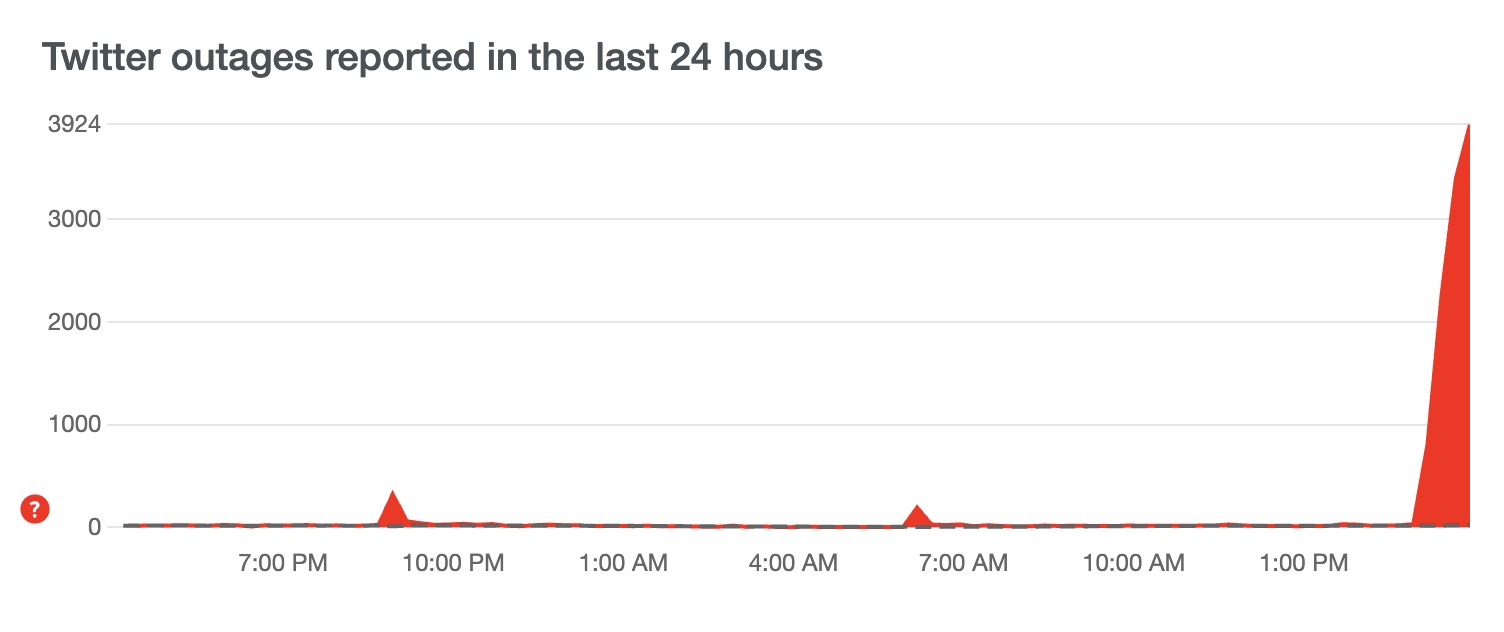Twitter is randomly logging out users. You’re welcome.
Twitter is not dead yet; it’s just randomly logging out a number of its users. After TechCrunch reported earlier today that Twitter was experiencing a bug that was allowing people to edit their bios to briefly regain their Verified check marks, the Twitter website this afternoon has begun to forcefully log out users at random. There are a number of complaints about the problem on Twitter itself, indicating that at least some are able to get back in after being booted from the site.
The issue appears to be impacting desktop users at this time who are using Twitter via the web. Some claim they’re being logged out repeatedly.
The issue occurs when you’re browsing the Twitter website, we found. The page refreshes and then Twitter users (including several of us here at TechCrunch) are taken to the default website for Logged Out users. This page shows a curated selection of tweets and options to sign in through Google or Apple or by creating a new account. Many people (tweeting via their phones, we guess) say they’re unable to get back into the site through any of the usual methods.
We’re facing that problem, too, having gotten to the screen where we can enter the code from a code generator app. But after the code is entered, the page only refreshes and returns us to the same Logged Out page once again.
The Downdetector website also shows a sharp increase in user complaints about the site, indicating the problem is fairly widespread.

Image Credits: Downdetector
Twitter has yet to acknowledge the problem via its official Twitter or Twitter Support accounts.
The bug is yet another example of the growing slate of issues that have followed Elon Musk’s takeover of the social network and the significant layoffs of engineering staff that the transition entailed. Since then, Twitter has experienced a range of problems, including glitches with Twitter Circle that showed private tweets to the public, broken timelines, broken links and images, and misfired error messages, and it experienced multiple outages. At the same time, the company is pitching itself to advertisers and creators, and suggesting its future will involve becoming a super app that also offers payments.
Over the weekend, in fact, Musk even touted how media publishers — a group he recently alienated by dubbing outlets like NPR and PBS “government-funded” — would be able to offer micropayments for individual articles through Twitter. A similar concept is now being trialed by Twitter rival Post.
It’s not clear whether any of Twitter’s big plans will ever gain traction, however.
After all, it’s hard to sell much of anything on a website users can’t access.


